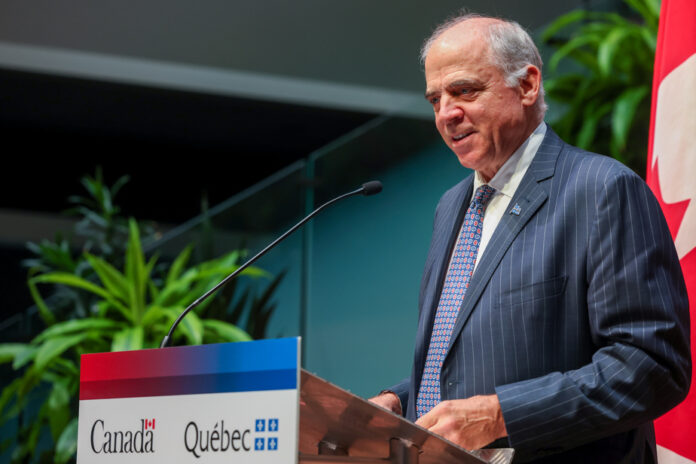The Ministry of Economy, Innovation and Energy recently presented its Sustainable Development Action Plan 2023-2028. What’s in it and what are the key targets? Minister Pierre Fitzgibbon answers our questions.
We were required to produce one under the Sustainable Development Act. If we go back to 2006, it was established that all ministries develop a sustainable development action plan. At the Ministry of the Economy, we therefore developed a first plan for the period 2016-2020, which we then extended until 2023 due in particular to the pandemic.
The 2023-2028 plan is now a new plan, a new version. It is a plan built from our different strategies, such as the 2022-2025 Quebec Entrepreneurship Plan and the Quebec Battery Development Strategy. This is where the different targets of the Sustainable Development Action Plan come from.
We want to accelerate the development of the circular economy. This is an important element. We also want to encourage the transition of businesses towards sustainable business models, and we want to ensure that there is awareness of the issue of sustainability in everything we do to help them.
Innovation, of course, is another obvious objective. We must innovate in terms of fundamental research. Innovation must enable companies to better respond to climate and circular economy challenges.
More broadly, we must support diversity. We have a workforce issue, and the inclusion of diversity is important from a sustainability perspective. Finally, we must support the dynamism of the regions and support the energy transition, which will require very significant emphasis.
Today, I think we are all aware of the importance of integrating the principles of sustainable development into what we do. But with this plan, we have targets because it forces us to be accountable. It’s not greenwashing, we really want to achieve our objectives. This is important to emphasize.
One of the targets to which I attach a lot of importance is that linked to the circular economy [objective of supporting five new initiatives aimed at the development of the circular economy by 2027-2028], since it touches on the question of residue management.
I also attach great importance to the objectives relating to innovation [objective of three new collaborative research projects in the sustainable development sector, by 2027-2028, supported by sectoral industrial research groups]. This is a problem that we have in Quebec, and which contributes to our wealth gap with other provinces or states.
Targets linked to territories [32.5% investment in non-urban MRCs in 2028-2028, compared to 30.5% on average over the last three years], to energy [300 million cumulative investments in renewable energy sector by 2027-2028, in particular] and transport are also important.
The answer is yes. It is clear that we will respect our ambition to reduce our GHG emissions by 37.5% in 2030 compared to 1990. With Hydro-Québec, for example, we have an aggressive plan to produce renewable energy. We are talking about practically doubling the size of Hydro-Québec by 2050.
I think that the action plan is starting to make Quebecers realize that we are large consumers of energy, and that consuming better will help us decarbonize.











